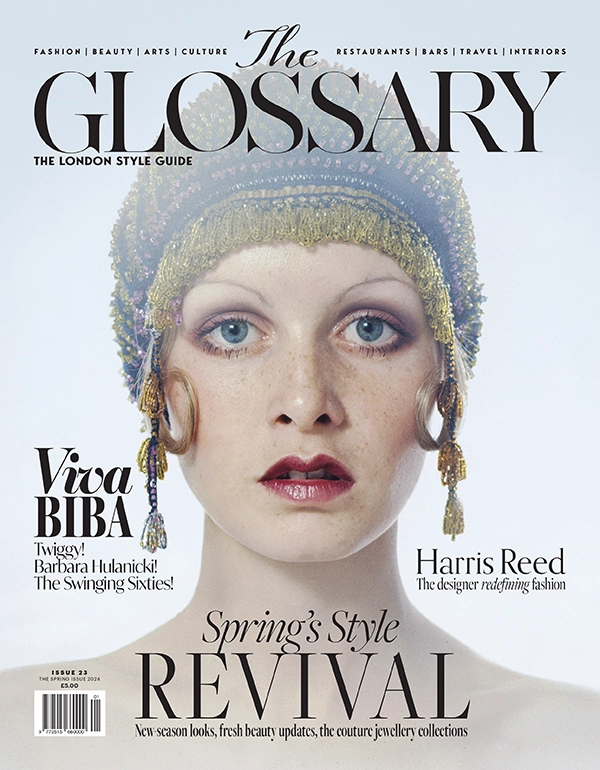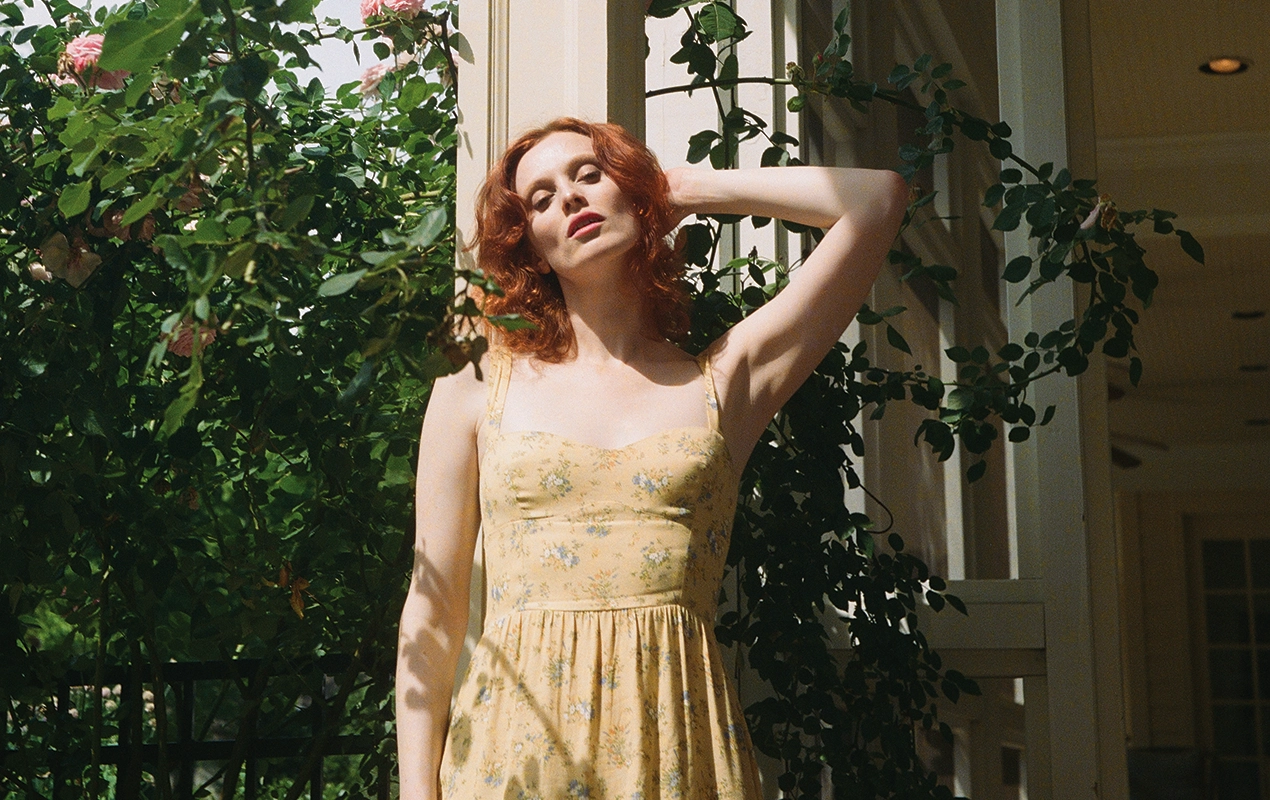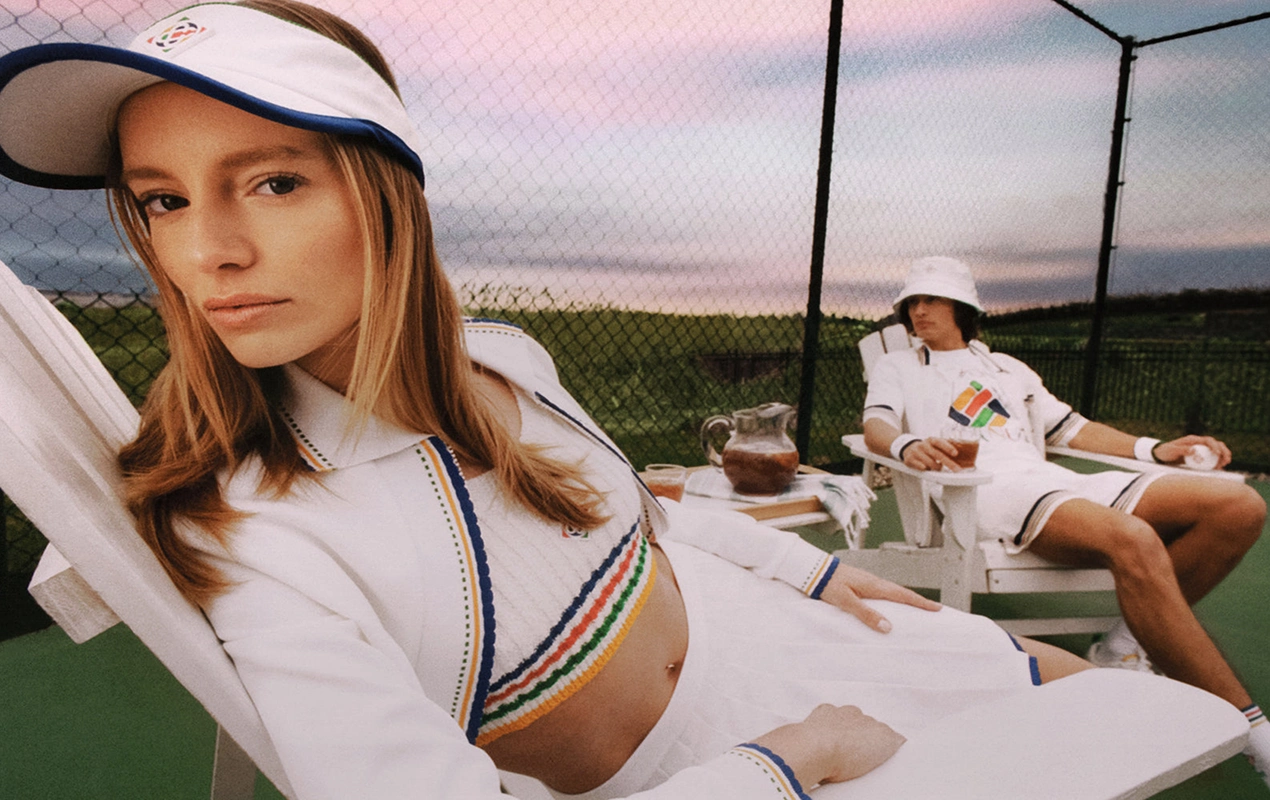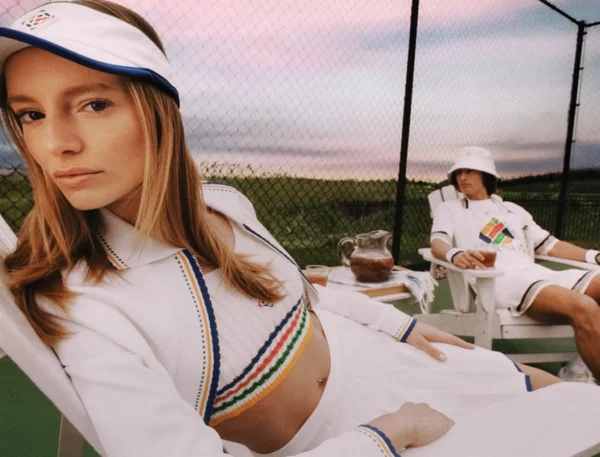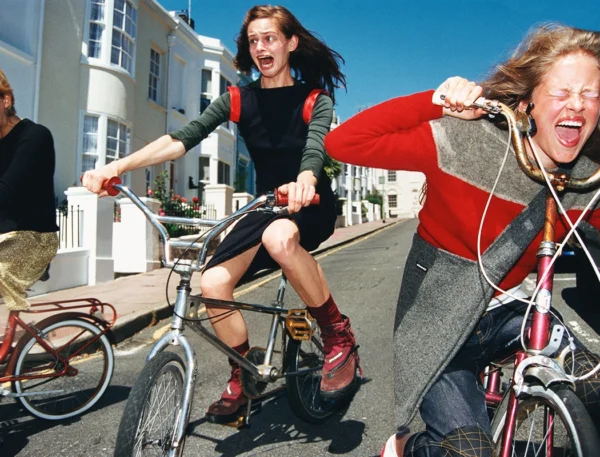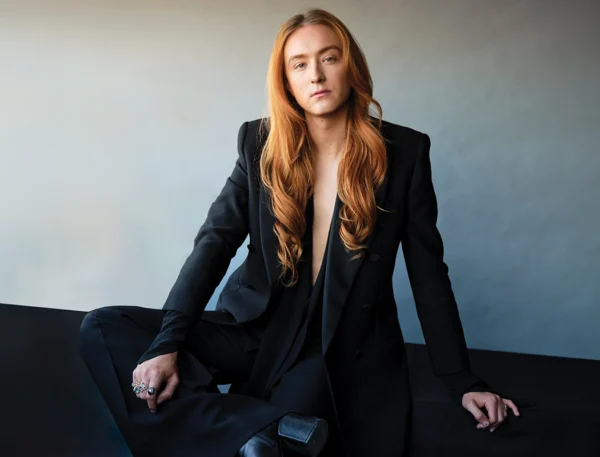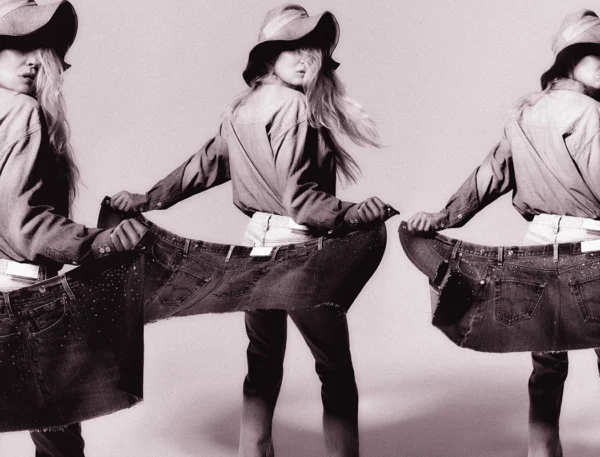When Karen Elson once described herself as not “your typical model” never was a truer word said. The Oldham-born, Nashville-based supermodel may have been in the fashion industry for over 25 years, her flame-red hair and porcelain skin gracing every cover and catwalk of note, but she has also just released her third studio album Green and is an ardent campaigner for models’ rights. Here, in our exclusive interview, Karen Elson talks to us about blazing a trail and looking to a brighter future.
It’s 8.30am in Nashville and Karen Elson already knows, today is going to be a good day. “It’s the first time in months where I don’t have a long, long list of things to do, honestly I am relishing in that.” We’re speaking over Zoom, and though I can’t actually see Elson (“I’m not camera ready,” she teases), it’s clear from her voice that she is feeling buoyant.
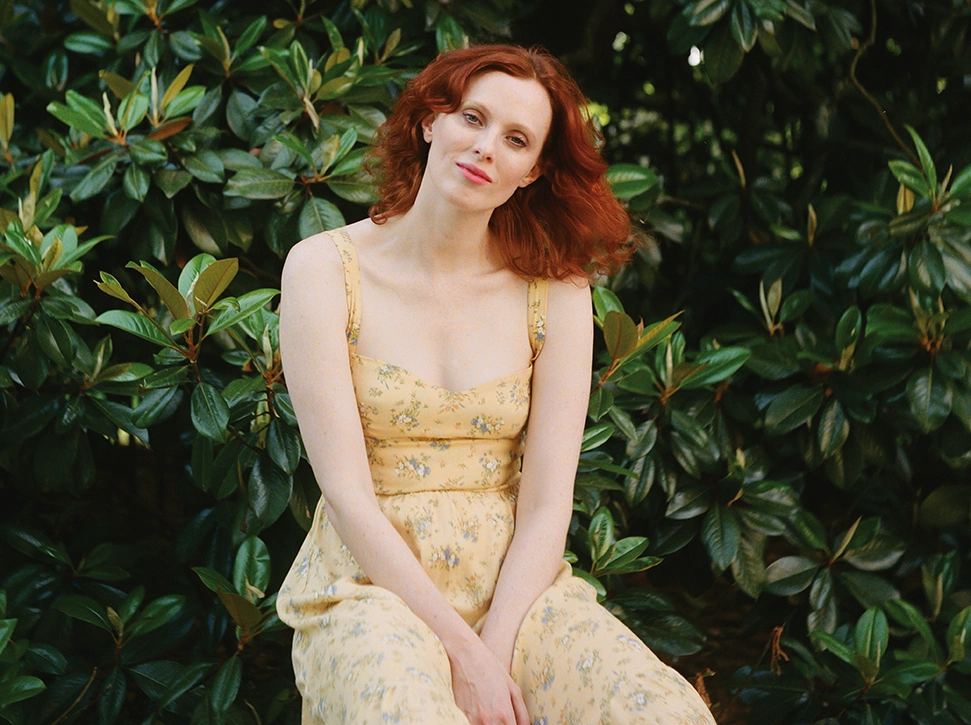 Pin
Pin After all, days off at home don’t come often. At 43, the British supermodel and singer-songwriter is as in demand as ever. Indeed, she’s not long back from couture fashion week in Paris, where she opened the Ami Alexandre Mattiussi menswear show alongside Cara Delevingne and Paloma Elsesser. She’s also recently launched her third album (her first in five years) Green, flying across the world to promote it, before kicking off a residency in New York’s revered Café Carlyle. “Who knew I was a lounge singer!” she laughs. After the whirlwind of the last few months, these are the days she appreciates the most. Luxury, says Elson, is “peace and quiet, a glass of wine and a nice chat with my children at the end of the evening”.
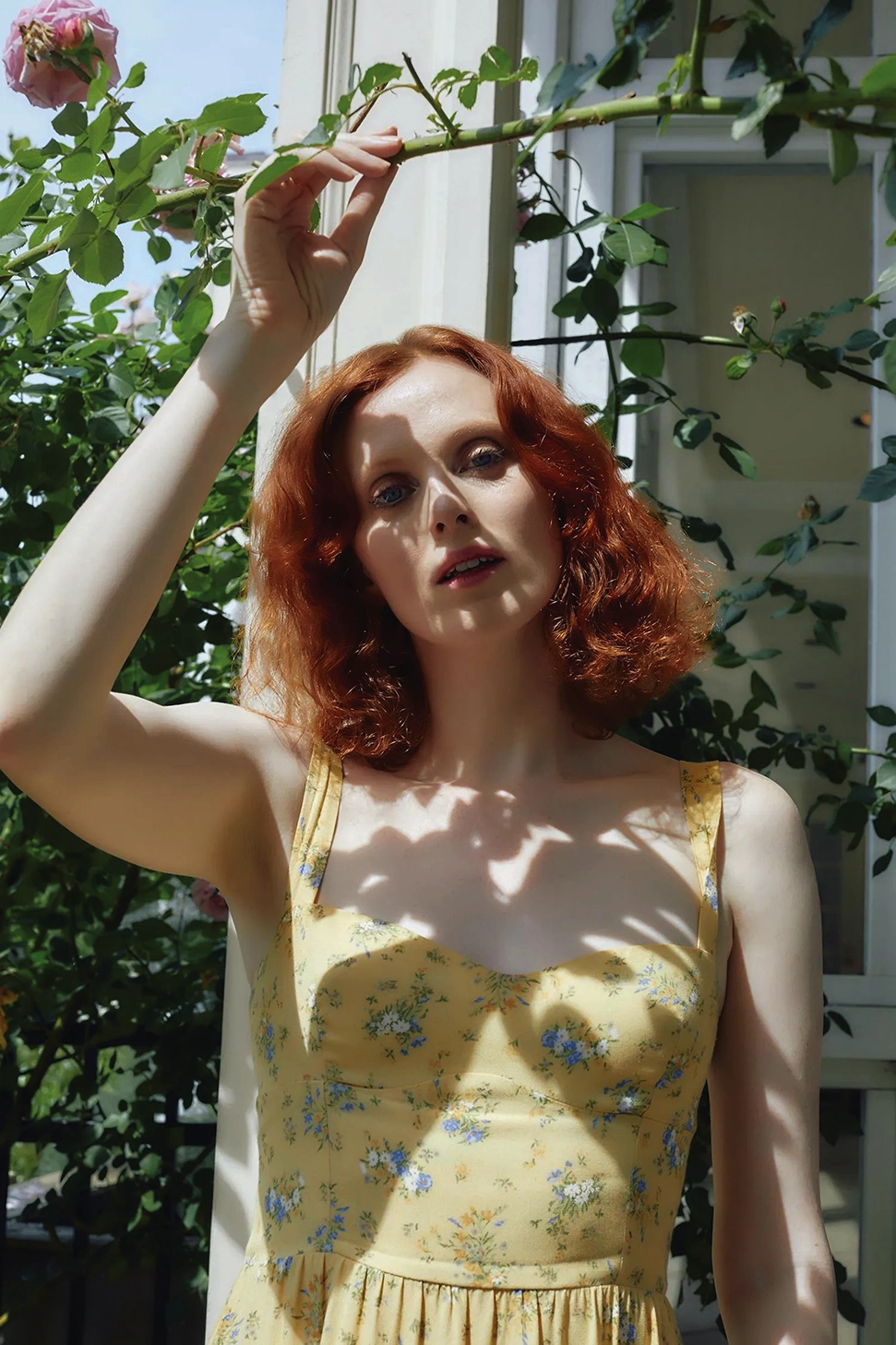 Pin
Pin With her flaming hair, sharp bone structure and porcelain skin, Elson is one of the most iconic and impossible-to-pigeonhole models of her generation. From shaved eyebrows to septum rings, posing with lions for a Tim Walker shoot to her immersive performance for Alexander McQueen’s famous Spring/Summer 2004 Deliverance show, which saw her dramatically carried off the runway by the designer, she has done it all. She’s graced multiple magazine covers (appearing on Vogue 35 times to date); been the face of global campaigns for Louis Vuitton, Versace, Burberry, Lanvin and Tom Ford; walked for pretty much everyone; and worked with all the photography greats including Bruce Weber, Peter Lindbergh, Patrick Demarchelier, Helmut Newton, Mert Alas and Marcus Piggott, Annie Leibovitz, Ellen Von Unwerth and more.
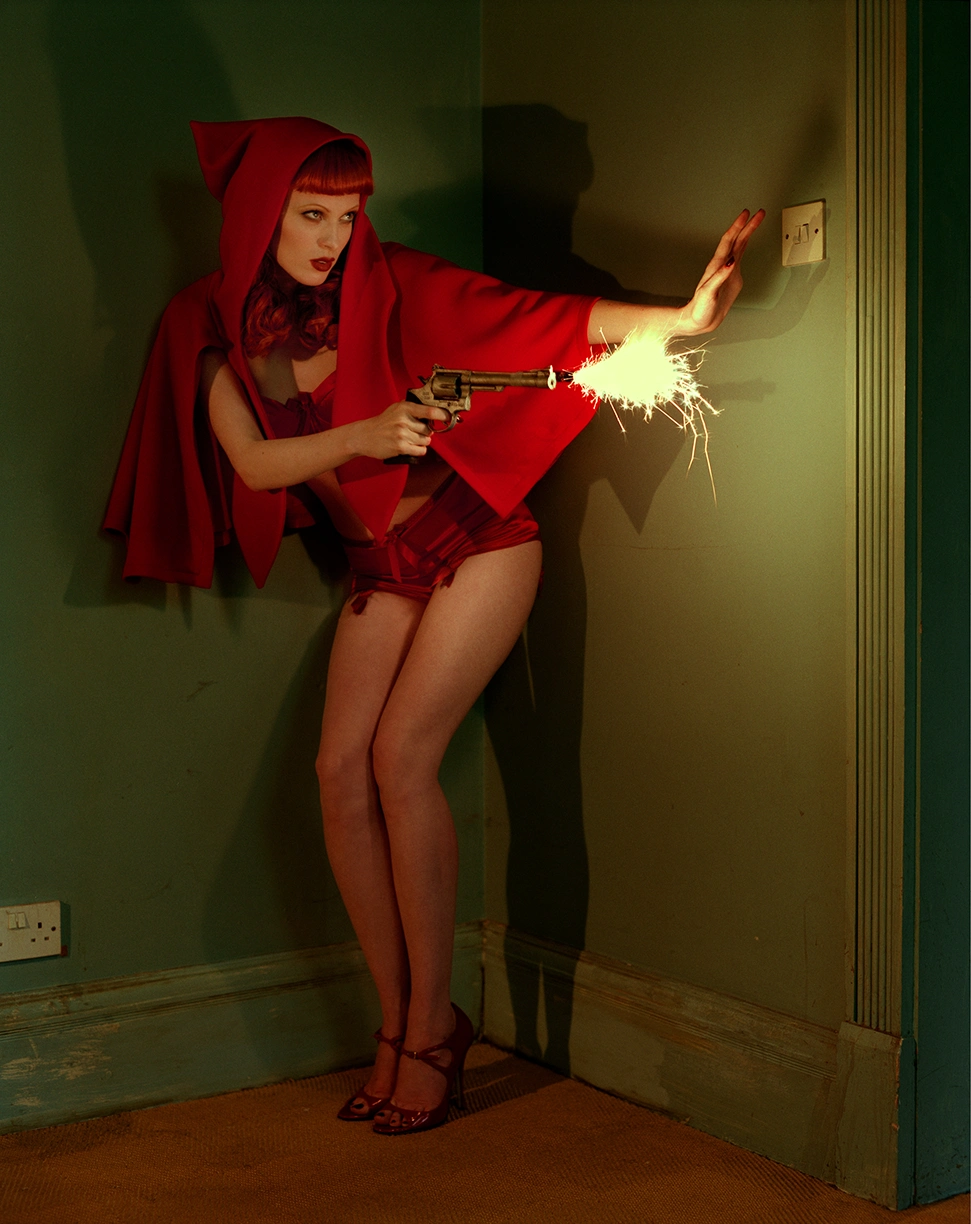 Pin
Pin The highlights of her illustrious 25-year career in fashion are many. She opened the Marc Jacobs AW06 show whilst heavily pregnant; appeared alongside fellow supers Naomi Campbell, Kate Moss and Stella Tennant, as one of eight British models to close the 2012 London Olympics, resplendent in a gold lace Burberry dress; and starred in a mini-musical for Moschino (she and Creative Director Jeremy Scott go back a long way). Though for Elson, her “pinch-me moment” was working with McQueen on Deliverance.
And yet, Elson’s legacy in the fashion industry goes far beyond her otherworldly beauty. She has been vocal about her experiences in an often-toxic industry – aged 16, she was sexually assaulted by a model scout in the back of a taxi during Paris fashion week. She ran away and told a friend, and the next day the same scout threatened to have her sent home. Then there was the agent who offered to pay her to lose weight; and being dropped from all her Milan fashion week shows for being deemed “too fat” when she was just nineteen. She is very open about her uphill battle with an eating disorder. “It’s hard to stay in recovery and work in an industry in which thinness is so celebrated and deeply ingrained. It’s difficult to free yourself from those trappings when they’re considered entirely normal,” she writes in her memoir The Red Flame (Rizzoli).
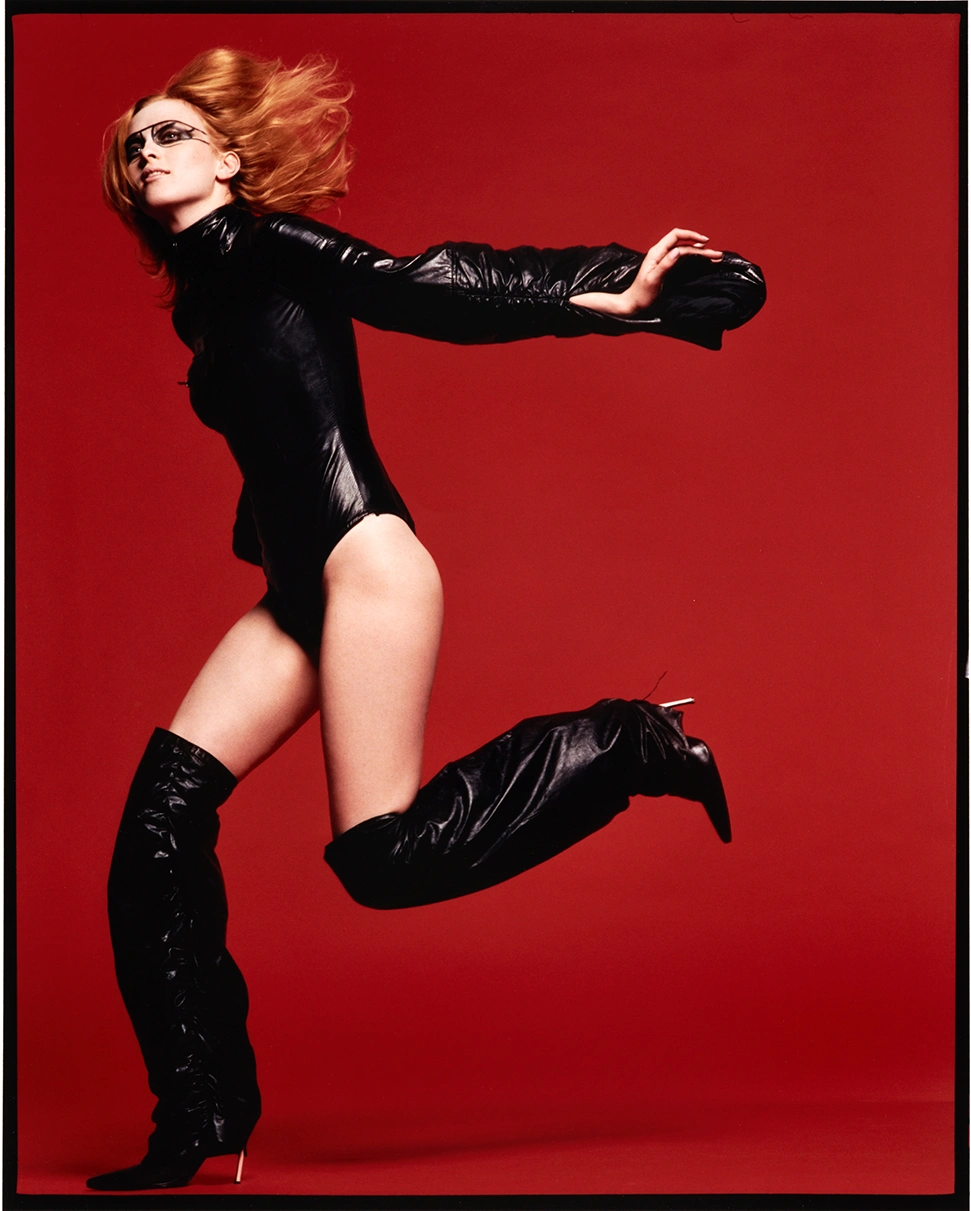 Pin
Pin “It absolutely forced me to have a reckoning because a lot of that stuff happened in my early days. I’ve had to learn to stand up for myself,” Elson tells me. “You know, it’s been very rare that I’ve had people stand up for me.” The #MeToo movement has undoubtedly played its part in Elson speaking up and she is a fierce advocate for models’ rights, using her platform to advocate for more ethical and accountable working conditions. As well as her continued work around The Fashion Workers Act, in 2020 she set up Model Mentor, a forum where young models can share their stories and seek advice. “A lot of model agencies themselves may have an HR department for the agents, but the models don’t have any mechanism to report grievances,” she explains. “Because there is a lack of legalities in the fashion industry, it gives the opportunity for those with sinister intentions to be able to get away with it.”
She’s seen these “bad seeds” again and again throughout her career and is determined to expose them. “Even one is too many. Because that one bad seed could do a lot of damage to a lot of young people. Scouts find young people all over the world, and they can be vulnerable – there’s a lot of young refugees who are models, and it becomes this sort of lifeline, you can become a model on the promise of money and escaping difficult circumstances and that’s really alluring. But it also gives the person who is scouting that model a great sense of control.”
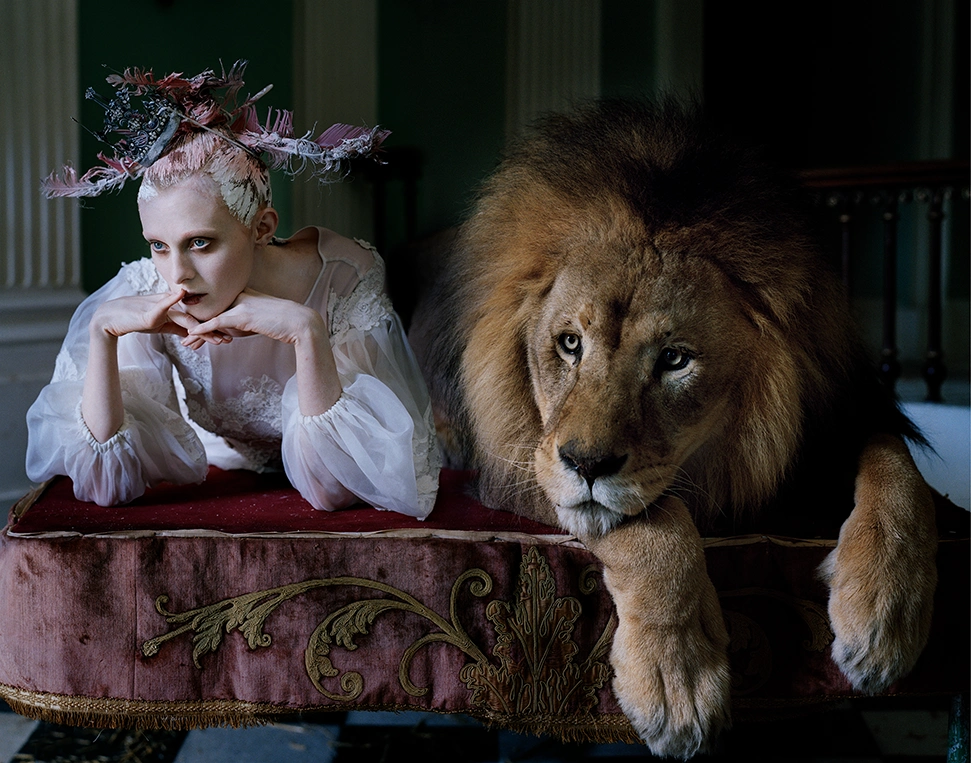 Pin
Pin Elson’s own start into modelling came with a similar sense of urgency. Growing up in Oldham, Manchester, she witnessed the rocky fallout from her parents’ divorce. At school she was bullied for her appearance (one bully told her she was “so fucking ugly”) and had been hospitalised for an eating disorder by the time she was eight. When she signed to a Manchester agency while still at school, she saw it as a way to escape from a future which, she has said, didn’t look “particularly bright and sparkly”. On her sixteenth birthday, she booked a train ticket to London and never looked back.
In the early days of her fashion career, she worked with Donatella Versace as a fitting model and landed shoots with a then fledgling Marc Jacobs. Her first major runway was Chanel’s 1997 fall show alongside Kate Moss, Linda Evangelista and Naomi Campbell. By the time she was eighteen, she’d landed a seminal Italian Vogue cover shot by Steven Meisel. Soon after, Karl Lagerfeld made her the face of Chanel, calling her “the beauty of the new millennium” (he also, fondly referred to her as “a mixture of something from the Middle Ages and a mutant from another planet”). In the era of the glamazon supermodel – Cindy Crawford, Helena Christensen et al – Elson, with her edgy, goth girl look, had made it, and then some.
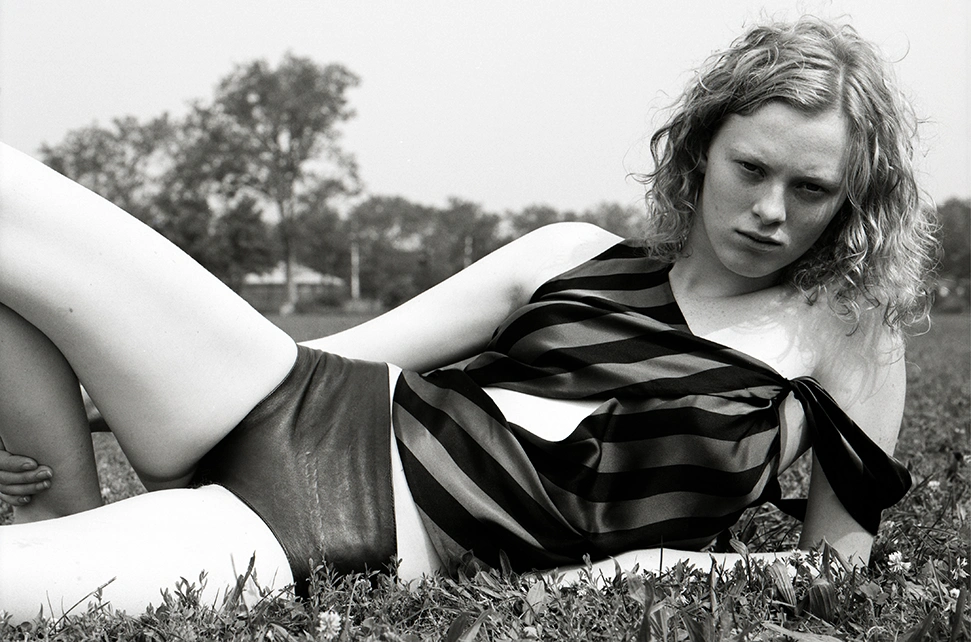 Pin
Pin She’s put this early success down to her ability to be malleable and easy to manipulate. Are these qualities she had to unlearn in light of negative experiences, I wonder? “I can still be malleable on set with people I trust,” she says. “If I feel good, I can morph into whatever they need, and that’s the key: if I feel comfortable and safe, I’m willing to do what it takes. But on the business side, that’s different. I need things buttoned up, I need to know what’s happening, I need to know what is expected of me before I walk on set, I need to know what I’m getting paid. That, for me, is immovable. I think a lot of people in fashion don’t want models to be businesswoman because the moment we are, is the moment we look at the business and go, ‘Hmm, this is strange’”.
Workplace sexism is something Elson has encountered throughout her music career too. She began singing with the support and encouragement of her, then, husband, the White Stripes frontman Jack White – with whom she has two teenage children, 16-year-old Scarlett and Henry, 14 – releasing her first album in 2010. “I was sheltered in that sense,” she explains. “After [her second album] Double Roses, I felt I was constantly battling this sort of internalised misogyny within the music industry. I was single, post divorce, I didn’t have as much protection. So, I was sort of thrown out there. I had a lot of negative experiences. And it put a bad taste in my mouth about the music industry; it felt like it really enabled a lot of men of questionable character to thrive. I felt very disillusioned.”
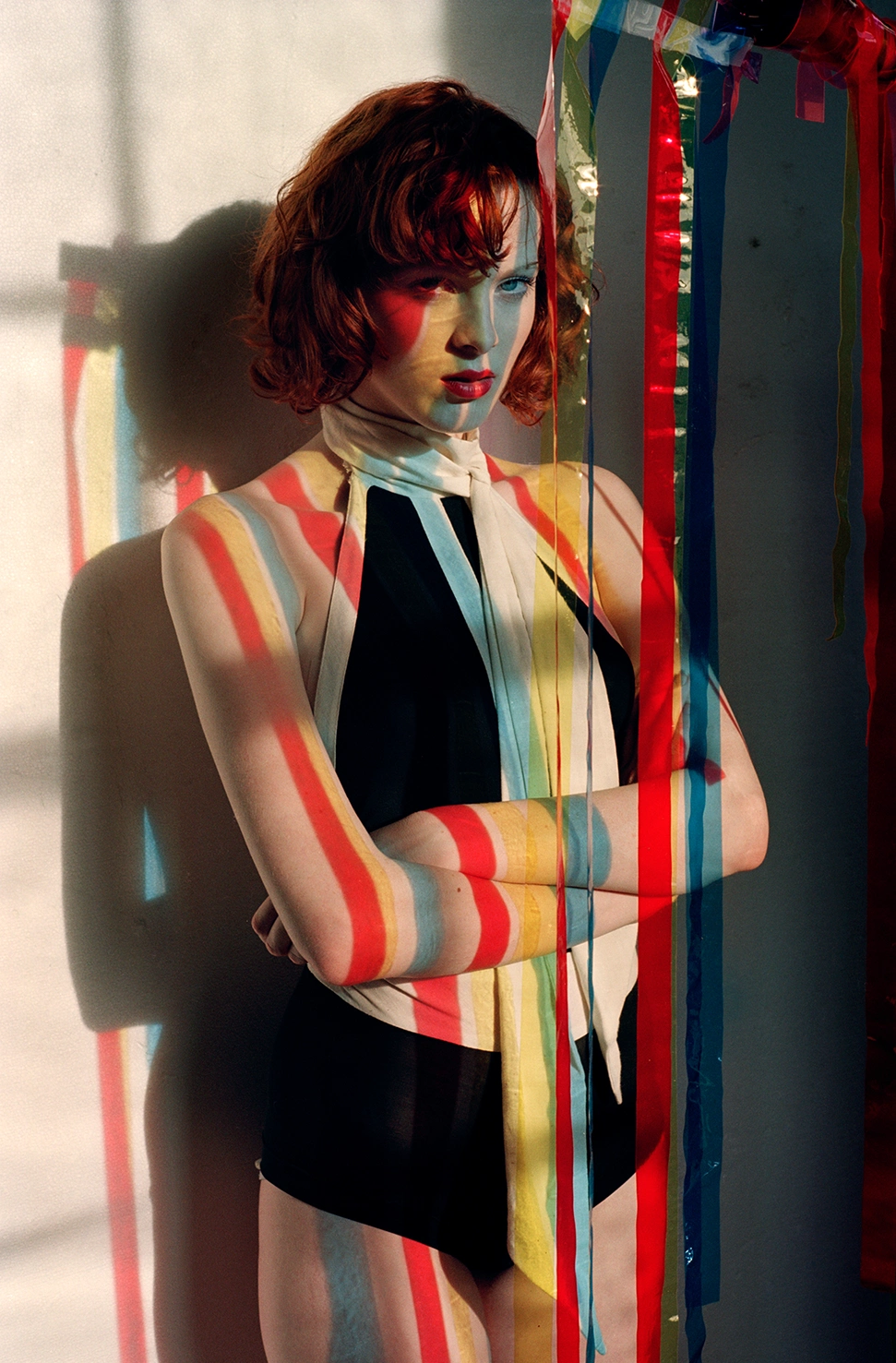 Pin
Pin Elson recounts occasions of fellow musicians, “inviting you out on the road because they have ulterior motives, not because they actually believe in your music” and record label executives “just talking about how you look and how they want to quantify your looks versus your music.”
The pandemic and subsequent lockdowns proved pivotal, however; being grounded in Nashville gave Elson the opportunity to connect with music in new ways. She started listening to Nick Cave and Joni Mitchell who made her turn to music in the first place, reconnecting as a fan first, artist second. Inspired by more of her favourite artists, she began Redhead Radio, a series of acoustic covers of her favourite songs – from Elton John’s Sacrifice to Dancing On My Own by Robyn. The sessions took the form of impromptu Instagram live sets, before she later released two EPs.
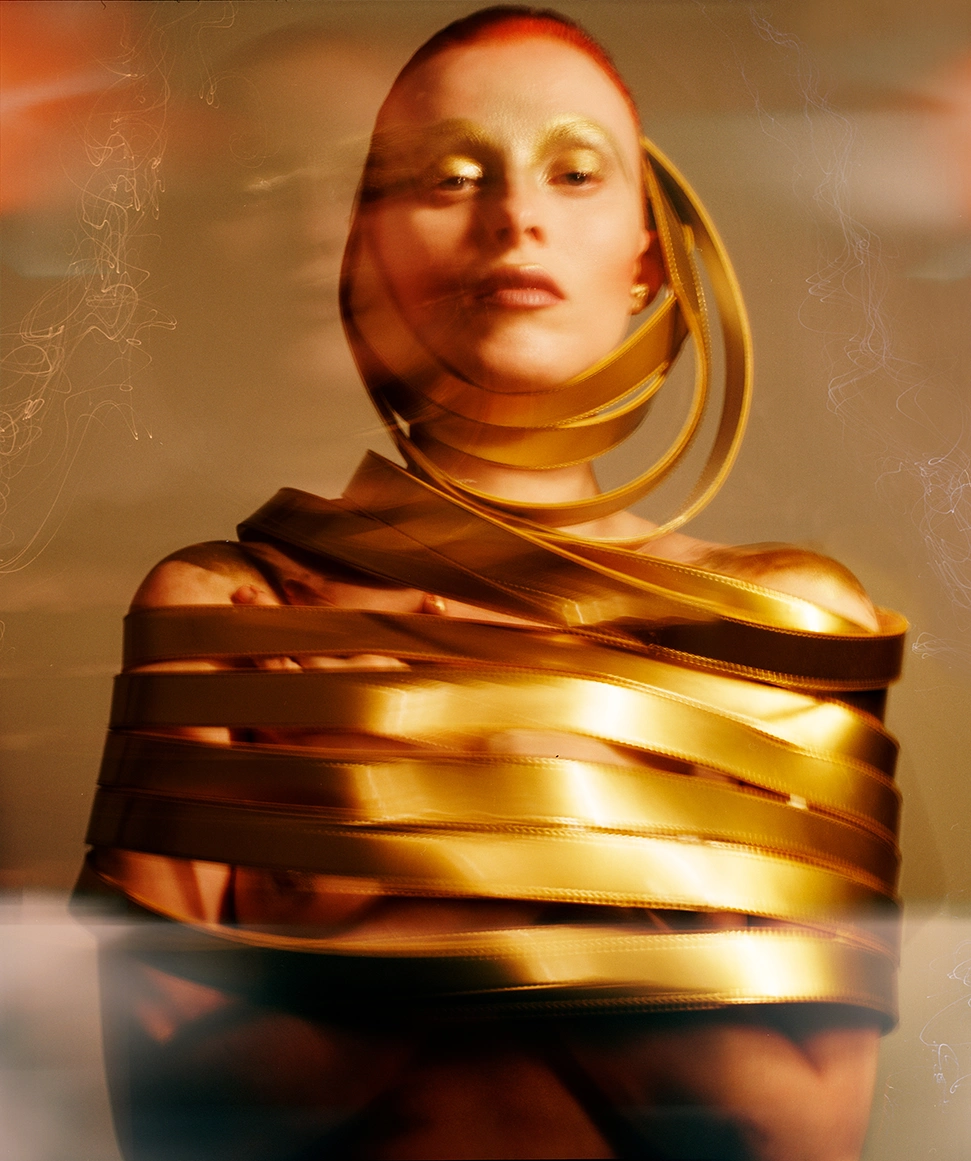 Pin
Pin She also began to embrace Nashville’s rich aural history and the musical community on her doorstep. When it came to working on Green, Elson wrote with Daniel Tashian and Ian Fitchuk, the Grammy-winning co-producers behind (fellow Nashville resident) Kacey Musgraves’ Golden Hour. She describes them as “solid human beings, family men with integrity.” The studio sessions felt relaxed and collaborative, and the result is a country-tinged album full of storytelling and sunny acoustic pop.
“You know, what I like about it, is that it’s a really easy record,” muses Karen. “It’s easy on the ears, it’s got this sort of lightness. I really came into myself as a songwriter, I felt less inclined to prove myself to people, I just wanted to make a nice record.” That lightness, she explains, is exactly what she needed. The world was in a period of intense uncertainty, and the process of writing and recording it was the antithesis.
Broken Shadow from the album Green
With Green garnering some rave reviews – critics have called it “poetic and beautiful” and “a lot brighter and warmer than anything she’s done, but every bit as good” – and the recent launch of her lifestyle brand ŪRŌ, which debuts with a limited edition run of three scented candles, I wonder what’s next for Elson. “I’d love to act one day, I think it would be so much fun,” she says. “I also want to make a documentary about models, as we don’t get the credit that we deserve for being the multi-faceted women we are. I’d also love to make a fashion musical because… why not?”
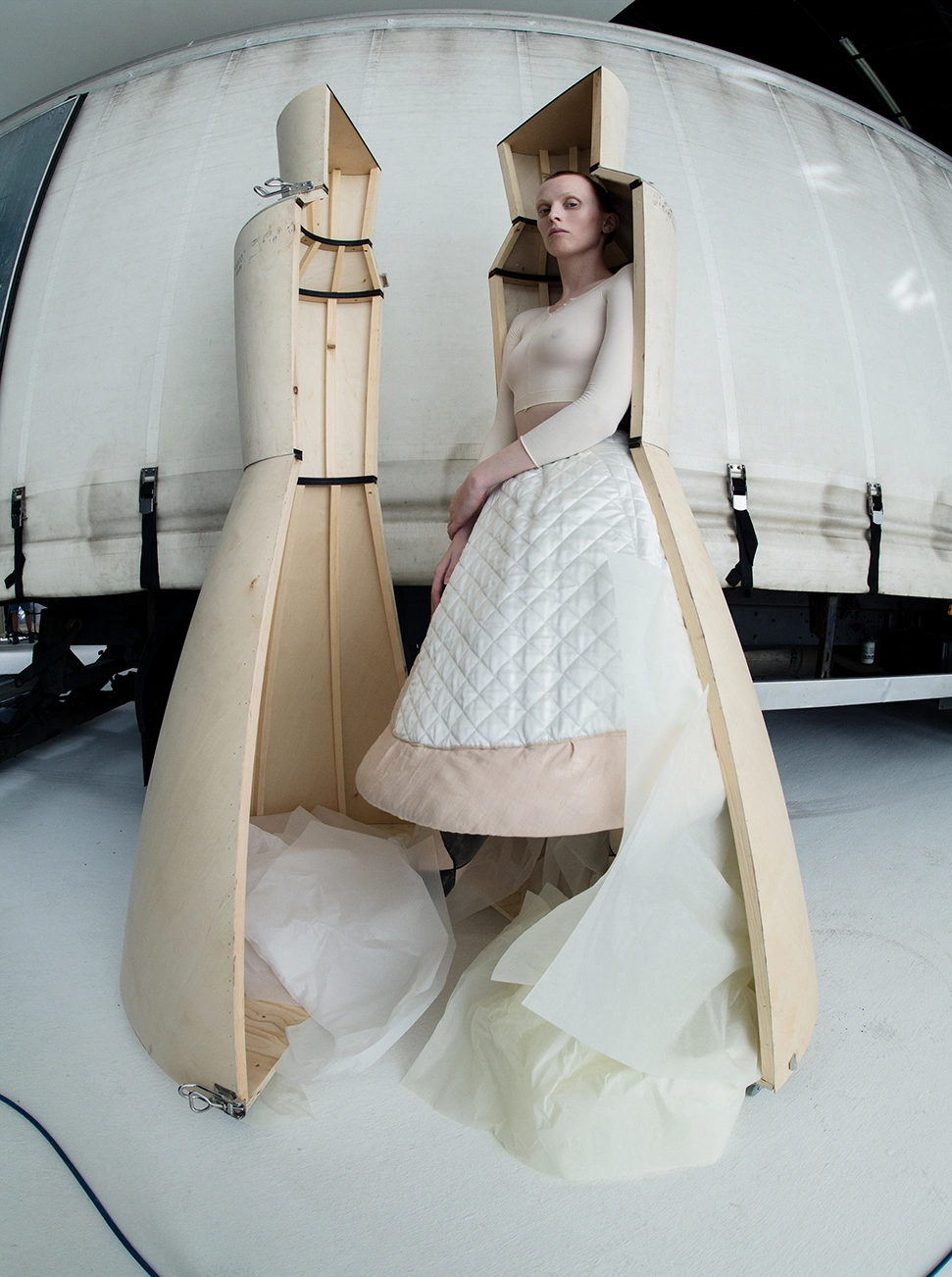 Pin
Pin As our time draws to an end, we chat briefly about her life in Nashville. She moved there in 2005 and now describes it as her “little oasis”. She has often exalted the joys of the Tennessee state city, praising it for its creative community (Nashville’s nickname is Music City) and for the “real sense of relaxation I have here that no other place can give me”. Elson’s personal style very much reflects this easy-going vibe. “I’m much more about ease these days than anything elaborate,” she tells me. “I used to wear vintage dresses a ton when I was younger, but I’ve passed those along to my daughter. I’m much more into simple dressing. I love Nili Lotan, Isabel Marant, and I’m super excited about Phoebe Philo coming back too. On stage it’s all dazzle – I love Alex Vaultier, Valentino, and Michael Kors.”
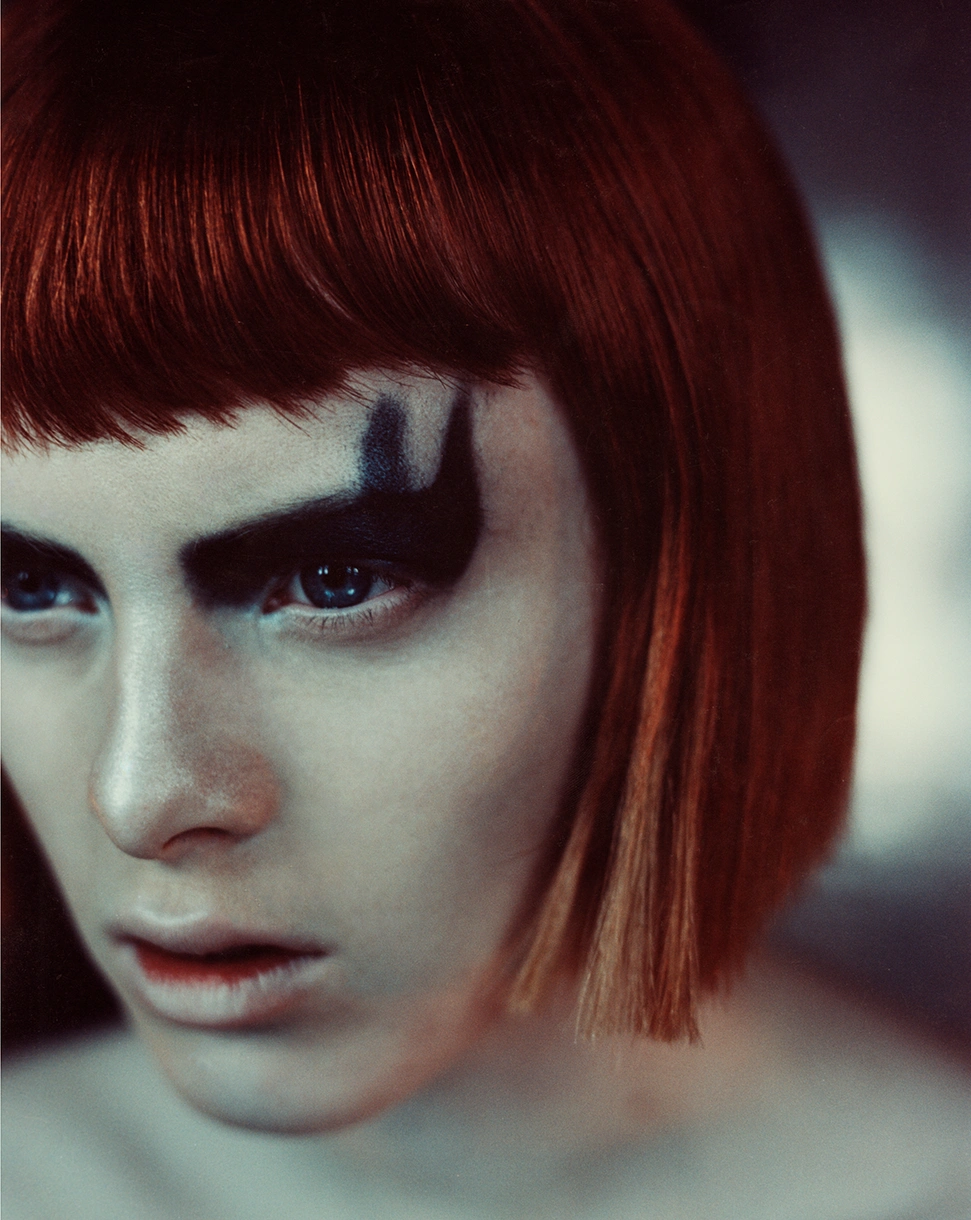 Pin
Pin As a British woman in America, she has a sharp awareness of the USA’s darkening trajectory. “Because I live in the south, I get a real window into the other side of America. A lot of people in Tennessee have never even left the state, they live in their own version of reality which isn’t a well-travelled version of reality. That’s not even me being dismissive of those people, but I think you have to pay attention to the fact that people live in their own bubbles. I don’t think there’s an easy fix.”
Still, she feels hopeful. “I think what’s happening right now is a direct consequence of a person like Trump being President, we’re still dealing with the political fallout, which should be a warning of what can happen. There’s a younger generation that knows right from wrong, and as they become the voting majority, like all things, there is an ebb and flow, a balance and counterbalance. It might take time and I don’t think this is going to be an easy fix, but I have to find hope and positivity in the darkness.”
Karen’s third album Green is out now
karenelson.com
